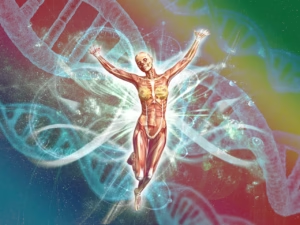He Has Risen, He Has Risen Indeed: Exploring the Bible Verse
The phrase "He has risen, He has risen indeed" resonates deeply within the Christian faith, encapsulating the triumph of resurrection and hope over death. It is a powerful declaration celebrated on Easter Sunday, reminding believers of Jesus Christ's victory over the grave. But what is the deeper significance of this message, and how does it impact believers today? Let's delve into the origins, meaning, and lasting influence of this profound declaration.
The Origin of the Phrase
Biblical Context
The exclamation "He has risen, He has risen indeed" is rooted in the New Testament, particularly in the Gospels which recount the resurrection of Jesus. The pivotal event unfolds on the first Easter morning when women visit Jesus' tomb only to find it empty. An angel informs them that Jesus has risen, fulfilling His prophecy of conquering death.
- Matthew 28:6-7: "He is not here; for He is risen, as He said. Come, see the place where the Lord lay."
- Mark 16:6: "Don’t be alarmed, you are looking for Jesus the Nazarene, who was crucified. He has risen! He is not here."
Though the specific wording "He has risen, He has risen indeed" does not appear verbatim in the Bible, the sentiment vividly captures the essence of the resurrection accounts.
Early Church Traditions
This phrase evolved as an Easter acclamation over centuries, often exchanged during Easter liturgies and services as a joyous affirmation among early Christians. It served to renew and reinforce their faith through a simple yet profound proclamation of Christ’s resurrection.
The Meaning Behind the Declaration
Triumph Over Death
The phrase embodies the core tenet of Christianity: Jesus' resurrection signifies victory over sin and death, offering eternal life to all who believe. This is not just a recount of an event but a reaffirmation of faith and hope.
Affirmation of Faith
When Christians declare "He has risen, He has risen indeed," they profess their belief in Jesus' divinity and the truth of His teachings. It reinforces the promise of salvation and reunification with God.
Encouragement and Hope
This expression stands as a beacon of hope, encouraging believers to remain steadfast in their faith despite life's challenges. The resurrection is the cornerstone that assures Christians of God's omnipotent power and everlasting love.
How It Shapes Christianity Today
Easter Celebrations
At the heart of Easter celebrations worldwide is this vibrant declaration. Churches across the globe resonate with the sounds of hymns and sermons that emphasize this triumphant moment. The phrase is often used in the traditional Easter greeting, "Christ is risen!" to which others respond, "He is risen indeed!"
Spiritual Reflection
For many, the resurrection is a time for deep personal and communal reflection. It calls Christians to renew their spiritual commitments and embrace a life modeled after Christ, filled with love, compassion, and forgiveness.
Inspiration in Daily Life
Beyond Easter, the resurrection narrative inspires many Christian practices and values throughout the year. It encourages believers to face adversity with courage and perseverance, assured of a victorious outcome through faith.
Conclusion
The declaration "He has risen, He has risen indeed" is a simple yet profound message within the Christian faith, encapsulating the essence of the Easter celebration and the promise of eternal life. It serves as a powerful reminder of the hope and salvation offered through Jesus Christ’s resurrection. As believers around the world continue to echo this phrase, they are not only honoring a pivotal moment in history but also reaffirming their commitment to live in the light of resurrection power. Embracing this message allows us to draw strength, hope, and inspiration, encouraging a faithful journey with confidence and joy.
Let this Easter season renew your spirit, strengthen your faith, and remind you of the eternal victory that awaits those who believe: He is risen, He is risen indeed!





